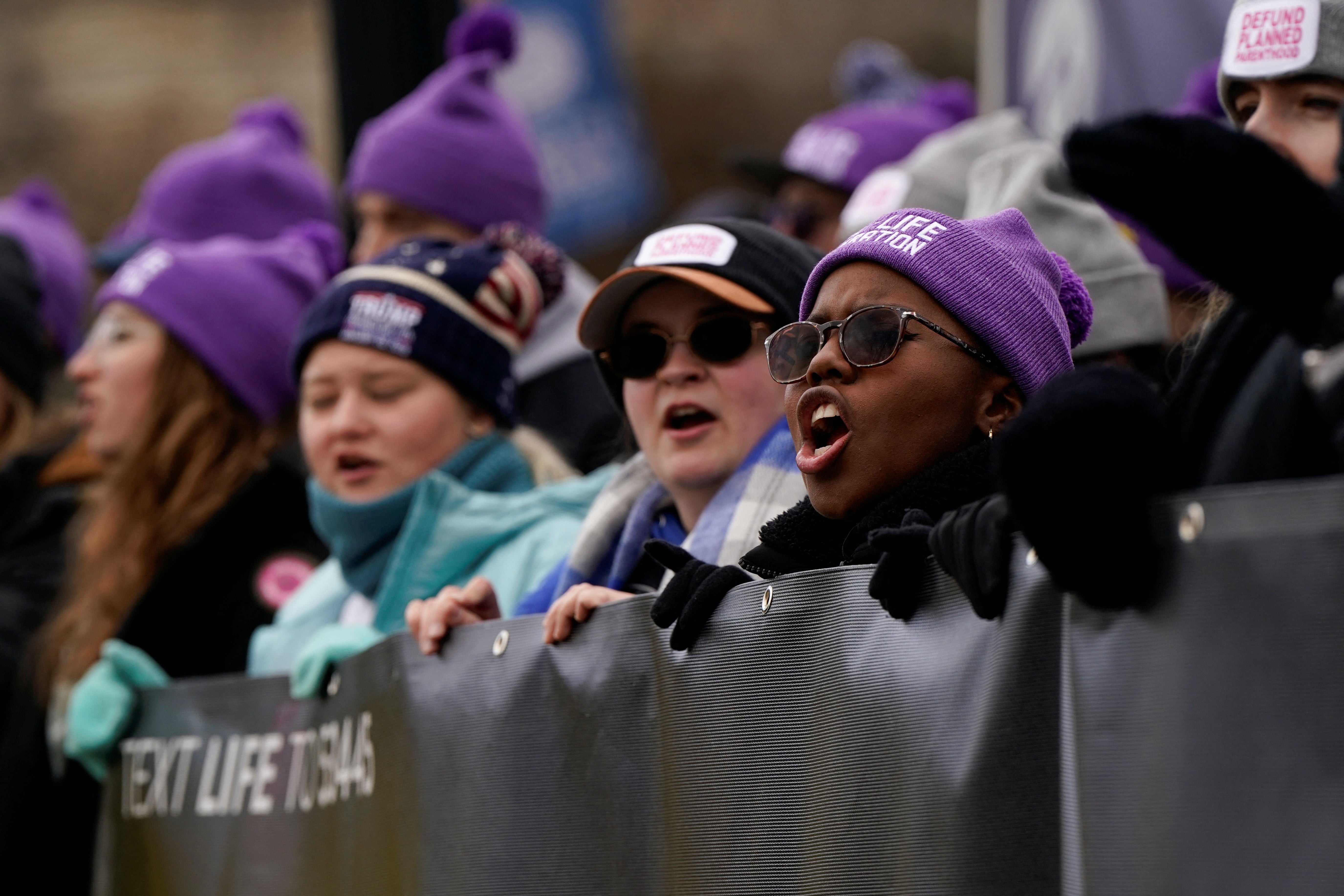Conservative Supreme Court Justice Clarence Thomas said he would “explicitly overturn” 25-year-old precedent that legalizes protest-free buffer zones outside abortion clinics to prevent anti-abortion preachers and protesters from obstructing patients’ access to care.
On Monday, the Supreme Court turned down a challenge from anti-abortion activists who sought to eliminate protest-free zones outside clinics, landing a critical blow to an emboldened anti-abortion movement following Donald Trump’s election.
A majority of justices on the nation’s high court — which is increasingly hostile to abortion rights — declined to hear arguments in a pair of cases seeking to overturn 2000’s Hill v Colorado decision that upheld clinic protest restrictions.
Anti-abortion groups and 15 Republican attorneys general challenged policies in Illinois and New Jersey that established such buffer zones, which are intended to prevent activists from so-called “sidewalk counseling.”
They argued that the Supreme Court’s 2022 decision to strike down the landmark ruling in Roe v Wade, which affirmed a constitutional right to abortion care, opened the door for challenges to another Supreme Court ruling from 2000 that affirmed protest-free zones outside abortion care facilities.
In the court’s 2022 decision in Dobbs v Jackson Women’s Health Organization, which upended Roe, Justice Samuel Alito wrote in a footnote that the Supreme Court’s decisions on abortion “distorted First Amendment doctrines.”

Anti-abortion lawyers wrote in filings to the Supreme Court that the “whole point” of the Dobbs decision “was to return the sensitive issue of abortion to the people.”
“The time has come for the Court to restore the constitutional rights that [Hill] eviscerated, and this case provides a perfect opportunity to do so,” former U.S. solicitor general Paul Clement wrote to the court on behalf of challengers to Illinois law.
In Hill, the Supreme Court upheld Colorado law that blocked people within 100 feet of a healthcare facility from “knowingly” approaching another person within 8 feet, whether that meant handing out brochures, displaying signs, or trying to counsel or yell at them.
On Monday, Alito and Thomas said they would have heard a challenge to that case — and Thomas would have “taken this opportunity to explicitly overrule” that 25-year-old precedent.
“Hill has been seriously undermined, if not completely eroded, and our refusal to provide clarity is an abdication of our judicial duty,” Thomas wrote.
“Following our repudiation in Dobbs, I do not see what is left of Hill,” he added.
By declining to take up the case, the court “declines an invitation to set the record straight,” according to Thomas.
“I would have taken this opportunity to explicitly overrule Hill,” he wrote.
“For now, we leave lower courts to sort out what, if anything, is left of Hill’s reasoning, all while constitutional rights hang in the balance,” Thomas added.
The decision follows Trump’s push to limit enforcement of federal law that protects abortion care facilities. In a memo from the Department of Justice, chief of staff to attorney general Pam Bondi, Chad Mizelle, told prosecutors to only enforce the law in “extraordinary circumstances” like instances of death or extensive property damage.
The Freedom of Access to Clinic Entrances, FACE Act, makes it a crime to harm, threaten or interfere with patients “obtaining or providing reproductive health services” or damage a facility “because such facility provides reproductive health.”
The FACE Act was enacted in the early 1990s in response to a wave of violent threats towards reproductive healthcare providers and patients.
"Until further notice, no new abortion-related FACE Act actions — criminal or civil — will be permitted without authorization from the Assistant Attorney General for the Civil Rights Division," Mizelle wrote to Justice Department officials last month.
Shortly after taking office, Trump pardoned 23 people who were convicted under the FACE Act for blocking entrances to reproductive health clinics, including protesters who used ropes, bike blocks and chains to stop patients from entering — actions that anti-abortion groups and Republican officials have characterized as peaceful protests that have been unjustly prosecuted by a politically motivated administration under Joe Biden.







